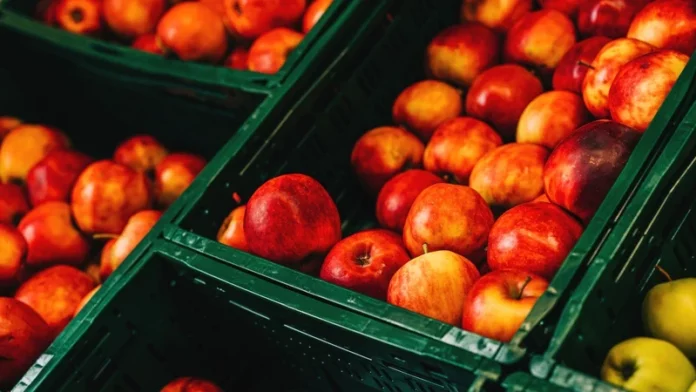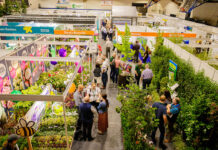

An agricultural economist says she is concerned about supermarkets selling fruit and vegetables at low prices as part of promotions and what it may mean for the sector in Ireland.
Professor Thia Hennessy, dean of Cork University Business School, told the Oireachtas Committee on Agriculture, Food and the Marine that the practice may be causing an increase in food waste.
“When I walk into a supermarket the week before Christmas and I can buy a bag of carrots for 29c because they are on promotion, that does bother me because I know it costs a lot more financially to bring that bag to market, a lot more environmentally as well.”
She told the committee that Ireland has the fifth highest level of food wastage in the EU, and is 15% higher than the EU average.
Research from the Environmental Protection Agency showed that fruit and vegetables are the most common types of food waste.
Professor Hennessy said that reducing food waste would also reduce greenhouse gas emissions.
“EU data shows about one third of all food is not consumed because it is lost in production or wasted at consumption stage.
“It is estimated greenhouse gas emissions could be reduced by 8% to 10% if food waste was eliminated.”
UCD Professor Dolores O’Riordan told the committee that the Irish horticultural sector, which is worth more than €500 million per annum, is facing a number of challenges.
“Growers are dealing with input price inflation and the power dominance of buyers, particularly supermarkets.
“The third challenge is the impact of climate change, particularly evident this year with the very wet winter and spring which delayed sowing of crops, reduced days for growing and yields, followed by drought in June and a wet July. ”
She said all these factors reduce growers’ ability to produce high quality crops and affects the prices they get, which reduces margins and the attractiveness of the sector.
Professor O’Riordan also pointed out fruit and vegetables are an essential part of a healthy diet and that consumption in this country is far below the recommended 400g per day.
She said consumption needs to go up in adults, adolescents and children.
Bord Bia Director of Horticulture Mike Neary outlined how the number of growers in this country has fallen hugely in recent years.
He said that potato growers have fallen from 1,400 to 300 and field vegetable growers have fallen from 1,400 to 400.
He said there is only one leek producer in the country.
He added however, that 7,000 people are employed directly in the sector with 11,000 more employed in “downstream” businesses.
He said opportunities to substitute homegrown produce for some of the €850m worth of fruit and vegetable we import exist.
“A certain amount of that we cannot produce in Ireland, exotic fruits, bananas and oranges….and due to seasonality, there are certain times when we cannot produce crops and we need imports, but if you ask the question are there crop you can grow in season here .. absolutely we can grow more.”
Mr Neary pointed to efforts afoot to grow more potatoes for the chipping trade to replace some of the 50,000 tonnes that are imported annually.
He also said there is an opportunity to grow more apples.
“We import about 65,000 tonnes of apples every year and we are only 3 or 4% self-sufficient.
“We do have some very good apple producers here supplying the market .. and new orchards have been planted in the last couple of years, a small area that is starting to build and that is now getting on to the Irish market.”
He pointed out however that growers have to be able to survive financially and viability is key.
He added that Bord Bia is engaged in marketing promotions for Irish fruit and veg both here and in the UK.
“We are particularly trying to engage with younger demographics, the millennial cohort, to increase the consumption of fresh produce, and very much in the context of our quality mark,
“It’s trying to call out for local, Irish, seasonal, sustainable produce. That’s really what the message is all about.”
The committee was also told a new strategy for the horticultural sector published during the summer, contains eight strategic objectives which if implemented, can benefit growers, retailers and consumers.









